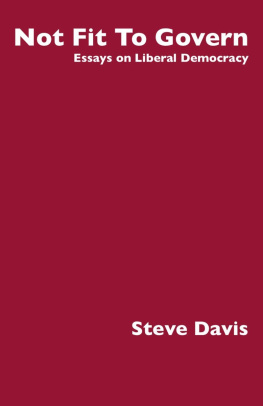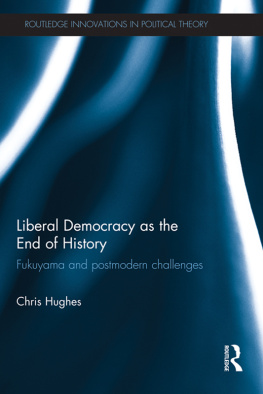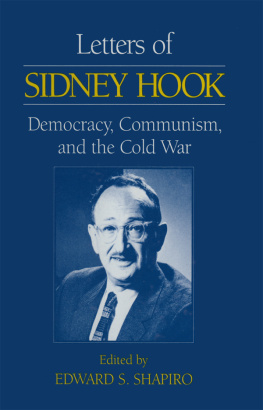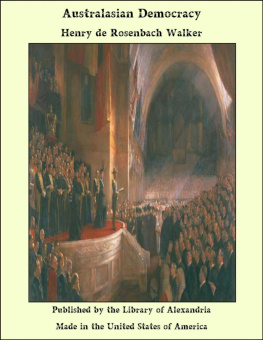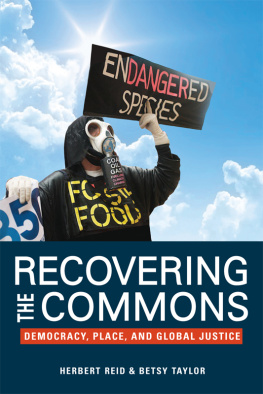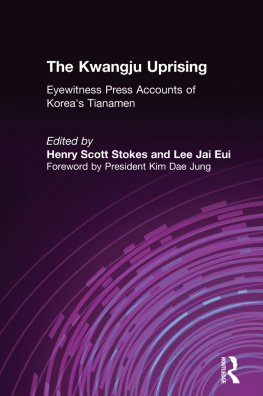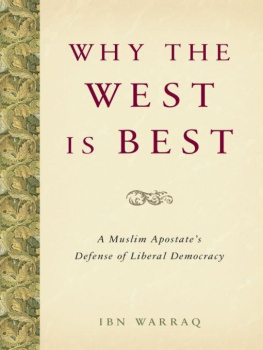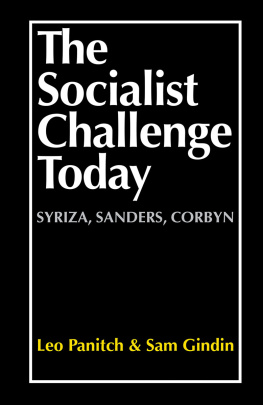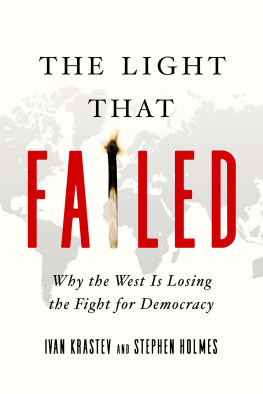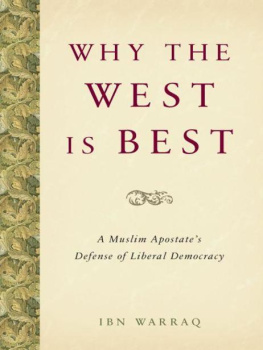Also by Simon Reid-Henry
The Political Origins of Inequality:
Why a More Equal World Is Better for Us All
The Cuban Cure: Reason and Resistance in Global Science
Fidel & Che: A Revolutionary Friendship

Simon & Schuster
1230 Avenue of the Americas
New York, NY 10020
www.SimonandSchuster.com
Copyright 2019 by Simon Reid-Henry
Originally published in 2019 in Great Britain by John Murray (Publishers), an Hachette UK Company
All rights reserved, including the right to reproduce this book or portions thereof in any form whatsoever. For information address Simon & Schuster Subsidiary Rights Department, 1230 Avenue of the Americas, New York, NY 10020.
First Simon & Schuster hardcover edition June 2019
SIMON & SCHUSTER and colophon are registered trademarks of Simon & Schuster, Inc.
For information about special discounts for bulk purchases, please contact Simon & Schuster Special Sales at 1-866-506-1949 or
The Simon & Schuster Speakers Bureau can bring authors to your live event. For more information or to book an event contact the Simon & Schuster Speakers Bureau at 1-866-248-3049 or visit our website at www.simonspeakers.com.
Interior design by Paul Dippolito
Jacket design by Richard L Joenes
Jacket images Clockwise Starting from Top Left: Reuters/David Brauchli ; Reagan and Gorbachev from Ronald Reagan Presidential Library; Soviet Union Flag/Public Domain Image; Trump Photograph by Nicoles. Glass/Shutterstock Premier; Tiananmen Square Photo by Jeff Widener/Associated Press; Obama Photograph by Evan Vucci/Associated Press; Stock Ticker Image by Bianda Ahmad Hisham/Shutterstock; European Union Flag by Hkan Dahlstrm/Getty Images
Library of Congress Cataloging-in-Publication Data
Names: Reid-Henry, Simon, author.
Title: Empire of democracy : the remaking of the West since the Cold War, 19712017 / Simon Reid-Henry.
Description: First Simon & Schuster hardcover edition. | New York : Simon & Schuster, 2019. | Includes bibliographical references and index.
Identifiers: LCCN 2019013544 (print) | LCCN 2019016633 (ebook) | ISBN 9781451684988 (E-book) | ISBN 9781451684964 (hardcover) | ISBN 9781451684971 (trade pbk.) | ISBN 9781451684988 (ebook)
Subjects: LCSH: DemocracyWestern countriesHistory20th century. | DemocracyWestern countriesHistory21st century. | LiberalismWestern countriesHistory20th century. | LiberalismWestern countriesHistory21st century. | Cold WarPolitical aspectsWestern countriesHistory. | Western countriesPolitics and government20th century. | Western countriesPolitics and government21st century.
Classification: LCC JC421 (ebook) | LCC JC421 .R4183 2019 (print) | DDC 320.9182/109045dc23
LC record available at https://lccn.loc.gov/2019013544
ISBN 978-1-4516-8496-4
ISBN 978-1-4516-8498-8 (ebook)
For Katerini, and Oscar and Elias
At the International Caf,
two fools are laughing
telling jokes.
They say if you want to lie,
you want to make someone laugh
just try the word democracy.
At the International Caf,
after theyve finished drinking
the fools chatted some more.
They said the moment will arrive,
when the whole earth
will be embraced by a white dove.
And a young man
sat alone on the side,
listening to the two fools talking,
saying that, if everyone on earth
was as crazy as these two,
wed really have a day of peace sometime.
Kostas Hatzis, Sto Diethnes To Magazi (At the International Caf), 1974
Introduction
But the scene is now changed, and gradually the two ranks mingle; the divisions which once severed mankind are lowered, property is divided, power is held in common, the light of intelligence spreads, and the capacities of all classes are equally cultivated; the State becomes democratic, and the empire of democracy is slowly and peaceably introduced into the institutions and the manners of the nation.
Alexis de Tocqueville, Democracy in America , 1831
W HAT IS THE story of democracy in our time? Not long ago the Western formula of democracy and free markets seemed unassailable. When the Cold War ended in 1989, the new great game played by diplomats, politicians and intellectuals alike became to promote and report on the further spread of democracy about the globe. The tendency was to assume that democracy was working well still at home. The war on terror and the financial crisis have more recently framed those assumptions in a less comfortable light. By the time of the uprisings that swept across the Arab world in 2011, the dimming status of the liberal democratic formula was clear. Whatever was being demanded on the streets of Cairo it was not Western-style liberal democracy. Nor was a liberal democratic form of government any longer something that could be built on behalf of these nations, as the United States had attempted during the previous decade in Iraq. In the aftermath of 2011, as Syria imploded and Islamic State dug in its bloodied claws, the former call to democratic arms of the pundits in Washington was replaced by a faint piccolo whistling about democracy in retreat. From the point of view of the West it was not long before the high drama of the Arab Spring was drowned out by a pervasive and growing cacophony of discontent at home.
The former narrative of democracys historical spread has now been firmly replaced by one of its crisis and decline. Never has there been such a thin line between a positive outlook for democracy and the chance
In recent years Western democracy has indeed come under threat; the basic right of citizens to habeas corpus has been pared back after centuries of struggle to flesh it out. Distrust in politics has grown. Foreign governments have been shown to have interfered in national elections. Civil liberties, including the right to privacy in the home, have been openly infringed. The growing power of political lobbies has given moneyed interests undue influence over policymaking, and has endowed a new class of politician with the ability not only to fundamentally misunderstand their constituents but to be rewarded for this. Socioeconomic inequality, which for much of the postwar era had been warded off by the welfare state, has returned.
In response to such developments, the streets of Western capitals have been marched upon by people in larger numbers than at any time since the high point of the civil rights movement half a century ago. Whether it is Occupy protesters or the gilets jaunes , white supremacists or national populists, a more assertive popular voice is emerging beneath the battered wing of liberal democracy and its representative institutions. Some of these movements are utopian; others demand greater rights, if only for themselves. But everywhere the clamor of popular disapproval is growing and is making its presence felt in the cordoned halls of liberal democratic debate. Democracy itself is changing before our eyes. But what is it that has changed exactly? That is the question I set out to answer in this book.
*
Stripped of its national particulars, modern democracy, as the influential Austrian jurist Hans Kelsen once argued, is the restriction of freedom by a law under which all subjects are equal.over time sought to reconcile these two valuesof freedom and equalityhas fallen short more often than it has succeeded. Franchises were neither full nor fair for most of the nineteenth century. And many of the parliaments and constitutions thrown up in the wake of imperialisms retreat did not survive long before they too needed rebuilding in the aftermath of two catastrophic world wars.
Next page

